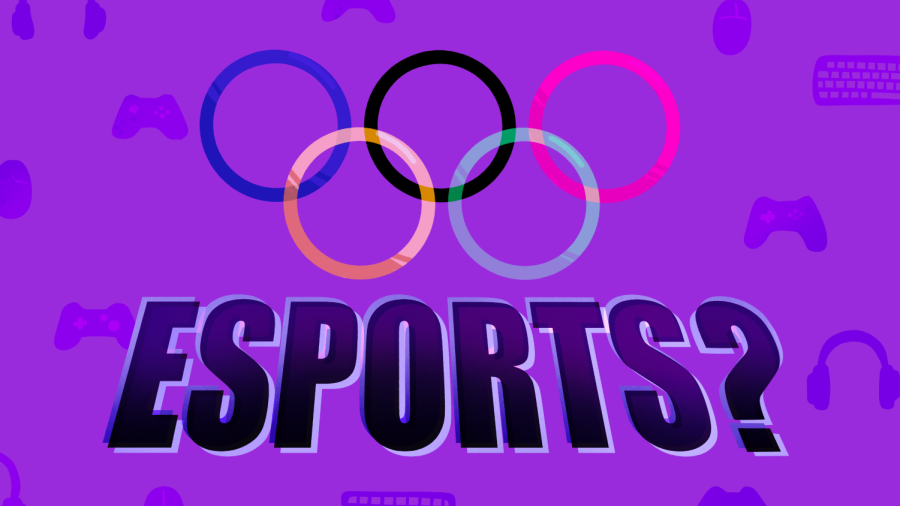OPINION | Esports in the Olympics are being done incorrectly
Last month, the International Olympics Committee (IOC) officially announced this year will be the first year of Olympic esports, bringing a virtual platform to the traditional athletic phenomenon for the first time.
Starting in the fall of 2023, these competitions will give esports a more prominent place in the Olympic spotlight and help to further develop this rapidly expanding industry. That was the IOC’s plan at least, but the games the Olympic Committee selected for competition were not what those who have advocated for Olympic esports would have expected.
Nine total events are being held at the esports Olympics, including archery, baseball, chess, cycling, dance, motorsports, sailing, taekwondo and tennis.
While these events definitely portray sports that are more “normal” to the Olympics, they contrast with the esports scene, as the games selected don’t include popular titles essential to the modern-day esports landscape.
The prize pools for the most popular competitive video game scenes are consistently in the millions of dollars per year; their popularity continues to rise, with thousands of new spectators each year. However, esports are not virtual versions of actual sports – they are popular video games played by millions of people every day, something the IOC decided to avoid for a different type of game.
Esports competitions typically feature games that are well-liked by players, whether shooter games, multiplayer online battle arenas (MOBAs) or fighting game titles. Some major esports examples from the past decade include games like CS:GO, Overwatch, Dota 2, Call of Duty, League of Legends, Super Smash Bros. and more. All of these titles fall into the aforementioned categories, but those selected by the Olympics do not.
Instead of these popular games, the IOC has selected games such as Tic Tac Bow, Chess.com, Just Dance and World Taekwondo to represent the categories of Olympic esports.
Ultimately, the Olympics’ implementation of esports is more akin to a virtual sports scene than an esports scene. The focus is on stereotypical sports instead of well-liked games that make esports so popular in the first place. There’s a very big divide between what common people think esports are versus what the IOC thinks esports are. Concerns about the morality of glorifying violence may have played a role in the selection of games, but if the IOC is serious about taking part in virtual competitions, taking this risk may be unavoidable.
This has caused a rift between esports communities and the IOC, as no one believes what the IOC is doing can be seen as esports. Many popular video game streamers see the selection of games as absurd.
While I can see why the Olympics went in the direction it did, the failure to include popular esports titles raises the question of whether an esports series should be held in the first place. There appears to be little consensus on the idea of an esports Olympics, with opponents coming from all quarters.
On one hand, why would you try to bring in what some would not consider sports at all?
On the other hand, why would you want to bring in an esports scene without any of the popular games that are hallmarks of the esports scene?
At the moment, it seems the IOC is pressing forward with the esports competition despite the backlash and is currently having tryouts for all nine of the selected games. Discussions about this competition have died down since the original announcement, but I’m sure it will make a large return once the esports competitions actually begin.
I believe esports in the Olympics can work, but it is going to take a lot of getting used to. There will certainly be some painful growing years, but what esports scene hasn’t had an awkward growing phase? It’s inherent to the concept of video game sports competitions.
Your donation will support The Lion's Roar student journalists at Southeastern Louisiana University.
In addition, your contribution will allow us to cover our annual website hosting costs.
No gift is too small.

Austin O’Brien is an English major with a Communication minor from Marrero, La. He enjoys different types of entertainment from movies to video games...

Yumi Domangue is a double major in mechatronics engineering technology and new media and animation. She joined Student Publications in the Fall of 2021...








woodskennith • May 17, 2023 at 8:25 am
no way they picked just dance for the olympics lmao